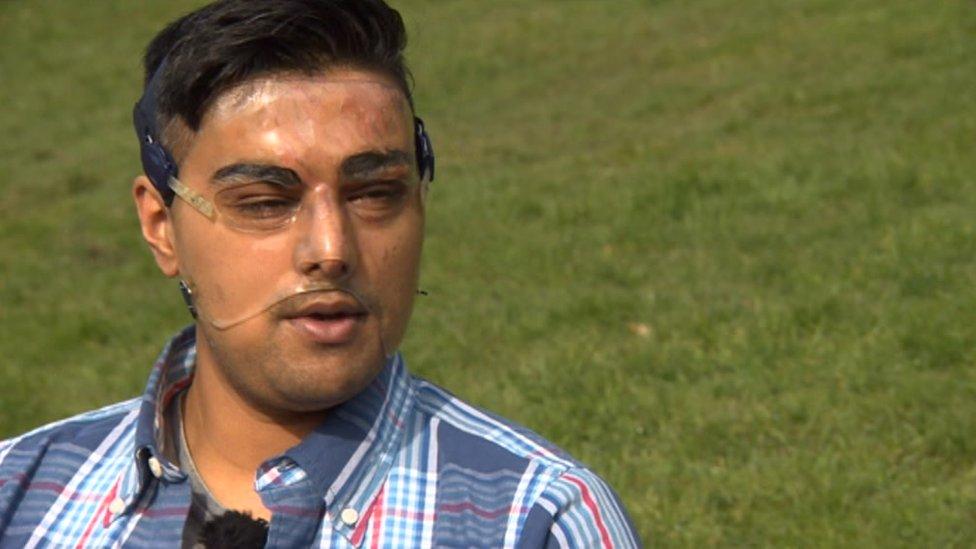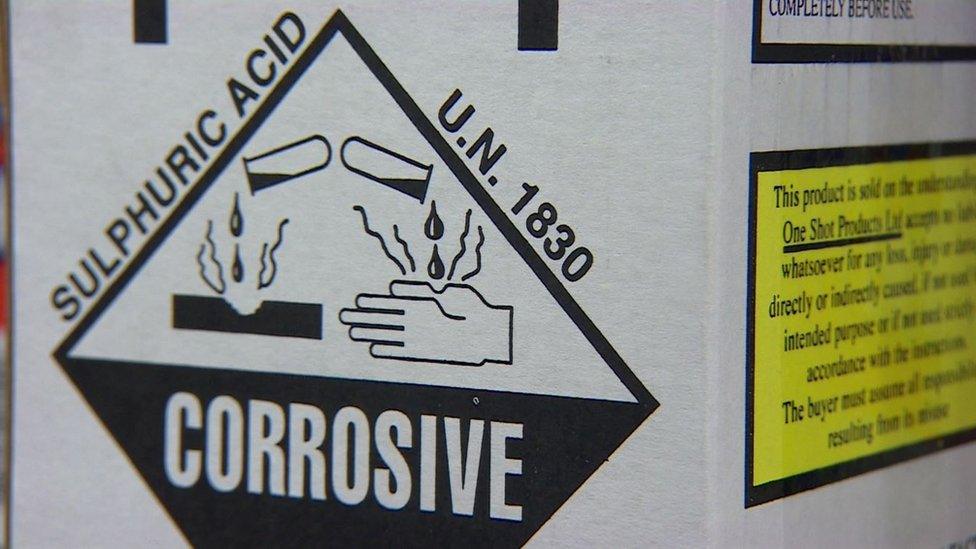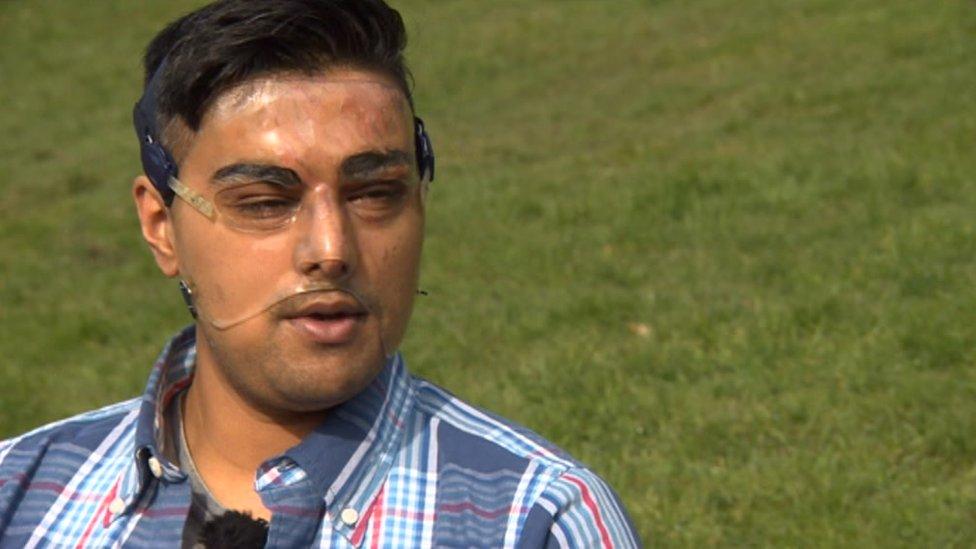Acid attacks 'hidden' by fearful victims, say police
- Published

Samir Hussain wears a mask because of the injuries sustained in the attack
The true extent of acid attacks in Britain may be hidden because victims are afraid of reprisals, police say.
Assistant chief constable Rachel Kearton said she wanted to encourage more victims to come forward.
She was speaking after an acid attack at a London nightclub left two people each blinded in one eye and several others with severe burns.
Samir Hussain, who suffered severe burns in a previous attack, called for more to be done to tackle acid attacks.
'Maim and disfigure'
ACC Kearton, from Suffolk Police, who is the National Police Chiefs Council spokesperson on corrosive attacks, told BBC Radio 4's Today Programme that although hundreds of assaults were reported across the country, other victims might be staying silent.
"I do fear that this is a hidden crime and that some of the victims are in fear of reprisal and don't come forward," she said.
As well as the nightclub attack on Monday, over the last month a family were attacked in the street in north London and a driver was carjacked in east London using "noxious substances".
Figures from police forces across the UK suggest that the number of assaults involving corrosive substances has risen by 30% in two years.
In London, the number of attacks increased from 261 in 2015 to 454 last year. About 74% of police investigations since 2014 were wound down because the perpetrators could not be identified or victims were unwilling to press charges.
"It's something that is used in order to maim and disfigure people and, as we've heard, it has lasting physical and emotional damage for victims," said ACC Kearton.
'A life sentence'
Samir Hussain was attacked out of the blue after a trip to the cinema in Crawley, West Sussex, two years ago. His attacker was recently jailed for eight years.
He told the Today programme: "It's one of the pains I can't describe, as soon as the substance hits your face, your skin just starts to corrode. I have burns on multiple places on my body, my arms, my neck, my head. They're going to be there for the rest of my life."
He called for greater restrictions on the availability of acids and longer sentences for perpetrators.
"I've got a life sentence myself, I'm never going to be the person that I wanted to be, and that's down to the actions of this individual," he said.
Restrictions on the sale of sulphuric acid, one of the most commonly used substances in attacks, were introduced in 2015, because of its possible role in the manufacture of explosives.
But ACC Kearton said many corrosive substances were common household products, such as bleach, making it hard to restrict them.
"It is a case of working with the retailers to understand what some of the restrictions are that can be practically put into place so that those who are legitimately purchasing these materials can go ahead with their business," she said.
Social isolation
Jaf Shah, executive director of Acid Survivors Trust International, said the current controls did not prevent people buying smaller quantities of acid.
"You don't need to have a large amount to cause serious physical and emotional damage," he said.
He said the UK-based charity, which advocates for victims worldwide, had become aware of increasing numbers of attacks in the UK over the last three to four years.
Attackers might choose acid as a weapon instead of a gun or knife because there were no penalties for possessing it, he said.
"On a global level, women are the majority of the victims. What we know in the UK is that the majority of perpetrators are young men, as are at least two-thirds of the victims," Mr Shah said. "The majority of the attackers are British white men and the majority of the victims are white men too."
He said that in recent years the UK had seen around 400 acid attacks a year, but that the real figure could be double that because the attacks were intended to intimidate victims into silence.
"The damage is so serious that many survivors carry the scars throughout their lives and it pushes them into pretty serious social isolation," he said.
"That's often the intention of the perpetrators, not just to cause lasting scars but to send a message to the survivors. That's part of the reason people may not report it, the fear of reprisal is very much there."
- Published21 April 2017

- Published20 March 2017

- Published19 April 2017
